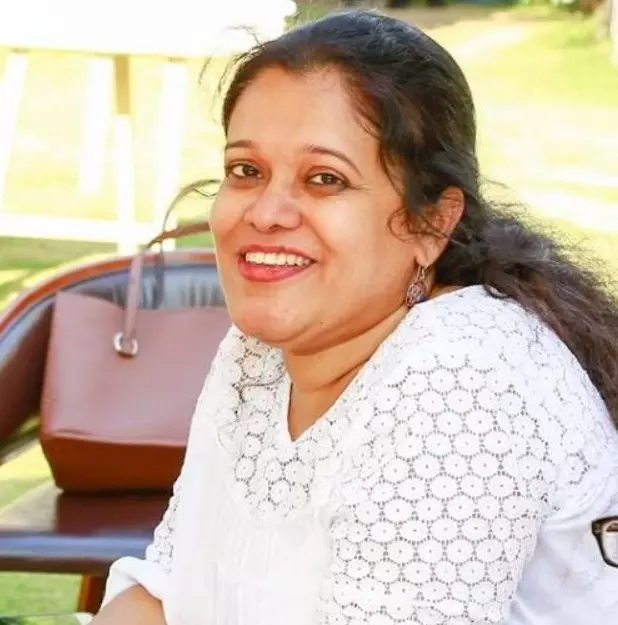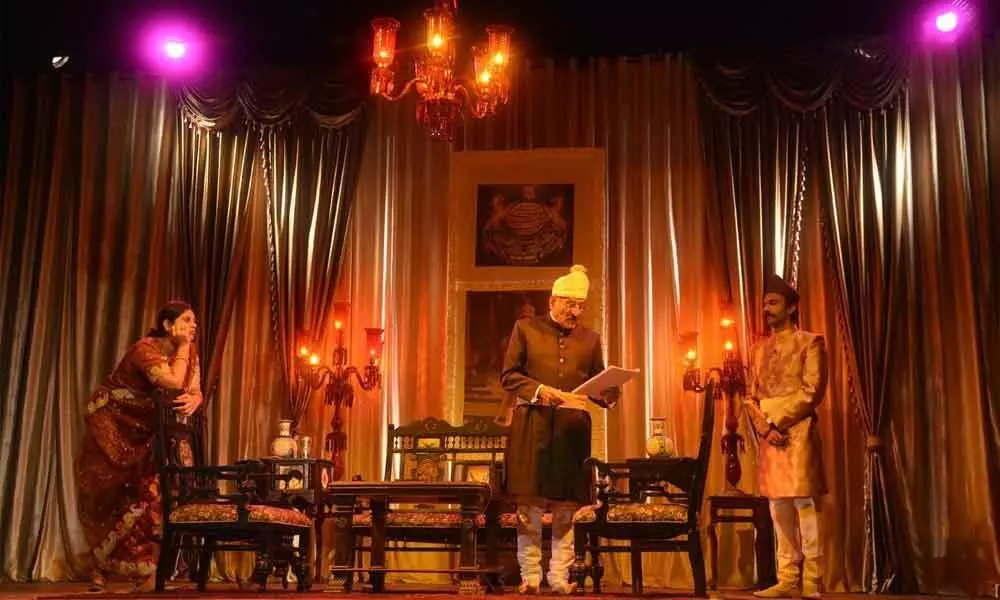Live
- Belagavi meet is Jai Bapu-Jai Bhim-Jai Samvidhan convention
- Four Karnataka soldiers martyred in J&K Army vehicle accident
- Madhya Pradesh to translocate 14 tigers to Gujarat, Chhattisgarh, Odisha
- Shiva Rajkumar gets cancerous bladder removed in US
- Modi: Ambedkar's vision neglected by Congress
- With holiday mood on a high, hotel room demand peaks in Hampi
- Vajpayee’s statue unveiled in Berhampur
- Bengal school job case: Special court hearing today to monitor progress of framing charges
- CM, Naveen pay tributes to Vajpayee
- Freedom fighter, veteran CPI leader R. Nallakannu turns 100 today
Just In
Two women playwrights, two perspectives


‘It’s that time of the year’ – thus began the introduction to yet another edition of Qadir Ali Baig Theatre Festival. And the fest began on a grand note by featuring two amazing plays over the weekend; both by young women playwrights, who looked at some known events and some unknown stories through a different lens than the ordinary. And, interestingly, both the plays have strong women characters, and their emotions, trials and tribulations do find a place of importance in the script
The seventh Nizam revisited
The festival opened with the home production of Qadir Ali Baig Foundation. Directed by Md Ali Baig, 'My Father His Exalted Highness' is written by Noor Baig, who also played the role of the daughter to the seventh Nizam of Hyderabad Mir Osman Ali Khan.
A daughter who always stayed in the shadows remained unmarried and waited devotedly on her father, and hence was witness to the life and times of the most celebrated Nizam from Hyderabad Deccan. He was considered the richest man on earth, was a philanthropist, and a noble administrator, who experienced the cold-shouldered response of the British at the time of need despite being the loyalists of the empire for centuries.
He was also a leader, who faced the difficult decision of acceding to the Indian republic or not. He decided to fight, and the ensuing developments led to many deaths and a humiliating defeat to the Indian army.
Interestingly, the Nizam who donated indiscriminately[11] to universities, was quite frugal with himself and sported certain eccentricities, that remain today as legends, stories and historical references.
However, it is for the first time that an attempt has been made through drama to peek into the emotional highs and lows that 'His Exalted Highness' must have gone through during different phases of his life.
Noor Baig sees the Nizam, not just from historical point of view, but as a human being, sensible, sensitive, and wise, who is not as excited with his picture on the cover of the Time that only talks of his riches and says this is how he is going to be remembered, as an outlandish man with cars.
He never shied away from supporting universities, be it the Aligarh Muslim University or the Banaras Hindu University. The play attempts to ponder over his thoughts when his decision to fight the Indian army leads to a loss of over 40,000 people, and eventually how he adapts to the new order.
It is endearing the way he harps over the ancestral iron boxes that carried the five tonnes of gold to erstwhile prime minister Lal Bahadur Shastri after the Indo-China war, a donation which he makes without a second thought, but wonders if the PM will remember to return his boxes.
The 57-year-old Begum Pasha, reminisces her conversations with her father, that were wise and insightful, while she also wonders if it was right that she should thus be ignored and left alone, a spinster, with no one to turn to, and missing her dead father, yet, bitter with how she was bereft of simple pleasures and desires.
The canvas is large, the events are many, and here was a script that dwelled on difficult relationship of the father and daughter, even while showcasing the Nizam of Hyderabad, beyond the pages of history; it was evidently quite a challenge, and the playwright did a fairly good job of fitting it all into a 70-minute play.
By introducing Rajaram – the Man-Friday (played by Md Ali Baig) as the sounding board, gave a third dimension to the narrative. Veteran actor Mohan Agashe donned the Nizam's cloak beautifully, however, it was more of a dramatised reading, as it was announced, and hence one was left wanting for more from this brilliant actor.
'My Father, His Exalted Highness' was an apt tribute to Hyderabad, the host city of the festival and the history of a remarkable, culturally enriched and secular State; a much-needed endeavour, exemplified by the grandiose palace set. But, a subject as rich as this, and with so many perspectives that it chooses to delve into, a few loose ends remain; the director could begin with staging it as a proper drama, which would be more apt for a subject of this stature.
Definition of love
Yet another young playwright, Neha Kargeti chose the much-explored writer Saadat Hassan Manto and gave his story a new dimension. In the play 'Ek Haan' by Panache Media, Mumbai, she looks into Manto, his characters, the way he led his life, his opinion on women, on why he had such a grey view of the world, the events, stories and their biographical references that may have had influenced the writer in him, through the eyes of a journalist Wazira.
The usually serious tone of the play, which is an evident premise when you deal with Manto, gets a respite through the playful conversation that this young journalist has during an interview with the writer, which he reluctantly agrees to.
One cannot understand Manto through just a dialogue and justifiably the drama shifts time and again to his most popular stories, 'Toba Tek Singh', 'Thanda Gosht', 'Kaali Shalwar', making for an intense storyline exemplified through some thoughtfully crafted conversations between Manto (played by Shekhar Suman) and Wazira (Suchitra Krishnamurthy).
The play ends on a revealing note, giving yet another glimpse into Manto, which the playwright says is one page out of his life. Shekhar Suman stole the hearts of the audience with his portrayal of the controversial writer. She brings the narrative into the present context when Manto recites - 'Gaai Hindu hogayi, bakra musalmaan'.
Apart from a few technical glitches, it was an engaging evening. If there is some improvement that needs to be brought in, of which there is always a scope – the director could probably give a moment for the audience to ponder over the powerful end of Manto's stories that were, of course, weaved well into the narrative; instead of shifting hurriedly into the next scene.
Tastefully done sets, and soulful songs in the background by Rekha Bharadwaj added to the mood of the play, which interestingly is also a love story.

© 2024 Hyderabad Media House Limited/The Hans India. All rights reserved. Powered by hocalwire.com






